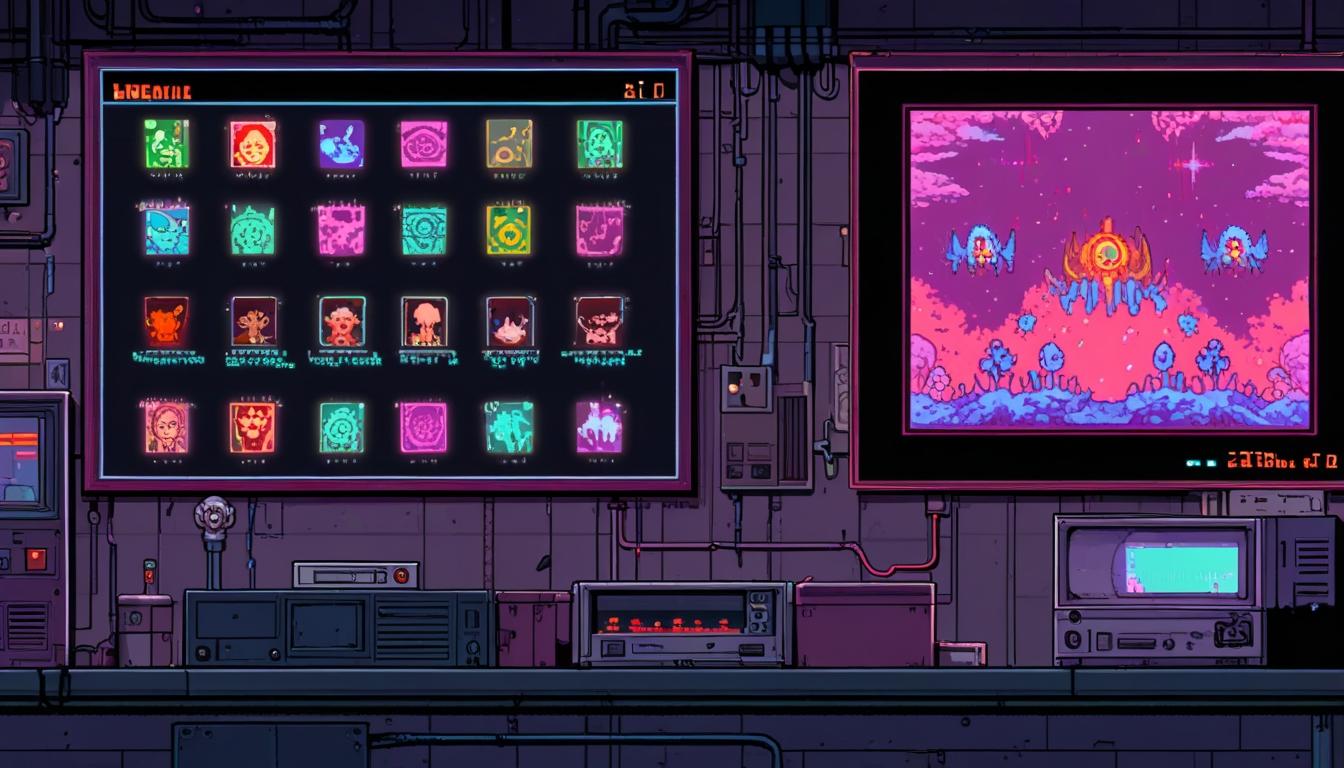The seventh season of Netflix’s acclaimed science fiction anthology series Black Mirror has introduced innovative twists that extend beyond its traditional storytelling to engage audiences interactively. Among the latest inventive features is a hidden QR code in the season’s fourth episode, “Plaything,” which leads viewers to a real-world mobile game inspired by the show’s fictional setting.
In “Plaything,” Scottish actor and director Peter Capaldi portrays Cameron, an elderly recluse who becomes engrossed in an unusual 1990s-style video game. The game, designed by Colin Ritman, played by Will Poulter within the narrative, challenges Cameron to nurture and manage a growing digital population called Thronglets. The episode explores Cameron’s escalating obsession and its dark consequences, culminating in a murder.
What sets this episode apart is the integration of a QR code displayed during the end credits. When scanned, the code directs fans to download Black Mirror: Thronglets, a “retro pet simulation” app available on Netflix’s video game platform. Described as an evolving digital ecosystem, the app allows players to hatch, feed, bathe, and entertain Thronglets, watching their numbers grow exponentially. As the creatures evolve, players unlock new gameplay elements including tools, abilities, items, and buildings. The app has attracted positive reception, boasting a 4.5-star rating supported by over 200 user reviews. Access requires logging into Netflix, linking the interactive experience directly to the streaming service.
This immersive approach complements another experimental narrative technique deployed in the second episode of the season, “Bête Noire.” Unusually, Netflix released two distinct versions of this episode at random, each presenting subtle but important variations. The plot follows Maria, a confectioner played by Siena Kelly, who faces professional challenges when her company hires Verity, portrayed by Rosy McEwen. The story’s mystery deepens as Maria notices shifting “facts” that seem to alter at Verity’s whim.
One focal point of this variability is the name of a former chicken restaurant, which becomes a subject of debate among Maria’s coworkers and in the narrative itself. Initially, viewers see a hat bearing the establishment’s name; however, depending on which version of the episode they watch, the restaurant is identified either as “Bernie’s” or “Barnie’s.” This detail has sparked considerable discussion among viewers comparing the two iterations.
Charlie Brooker, the creator of Black Mirror, addressed this intriguing ambiguity in a cryptic message shared on Netflix UK & Ireland’s social media channels. Holding a cap emblazoned with “Barnie’s,” Brooker remarked, “Depending on which version of the episode you saw, you might have a different take on it. Did we change anything? Well, I couldn’t possibly comment. You’re going to have to go back and watch it again for yourselves, and argue about it.”
Black Mirror’s seventh season’s availability on Netflix continues to push the boundaries of traditional television, blending narrative innovation with interactive digital experiences. These unique elements contribute to the series' reputation for challenging audiences to engage with its stories in novel ways.
Source: Noah Wire Services
